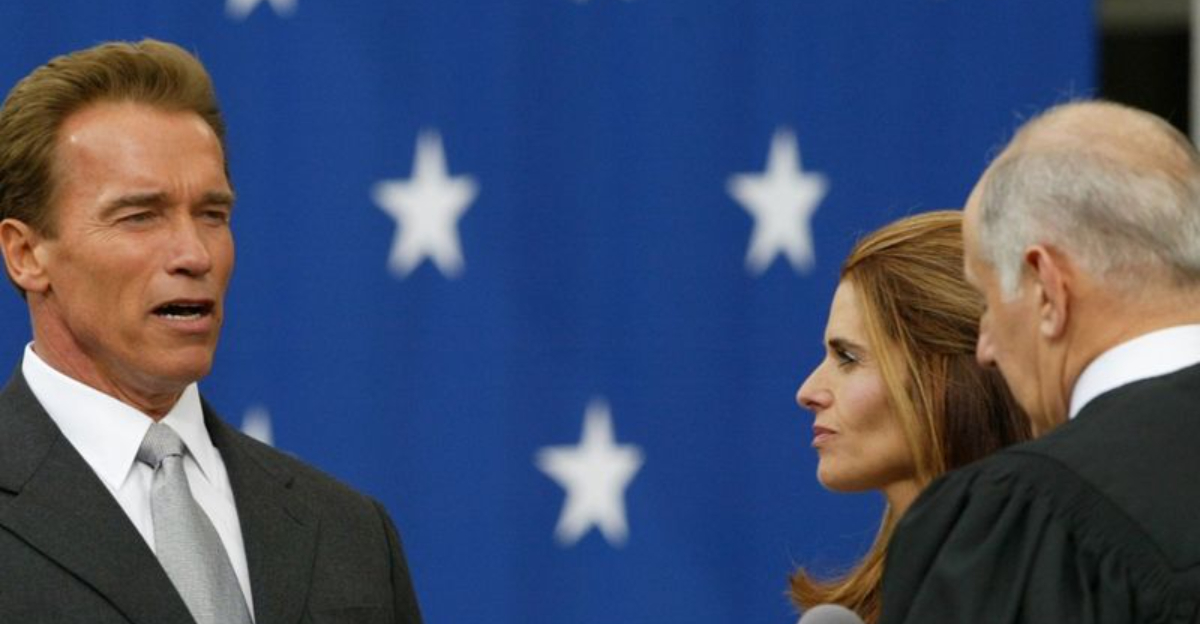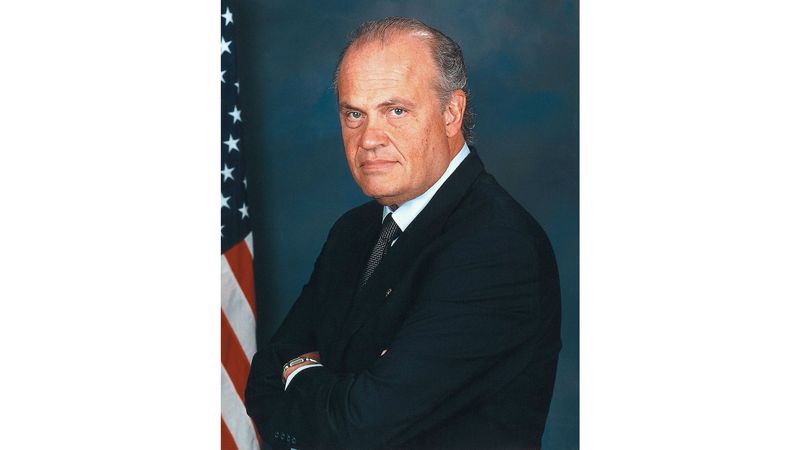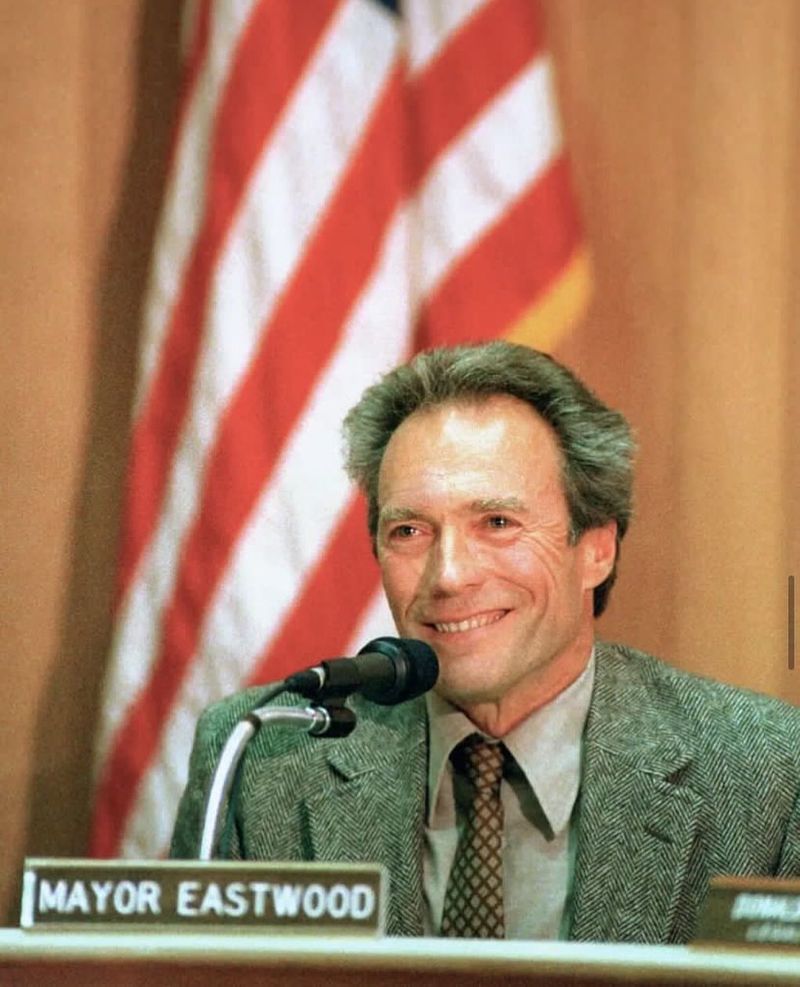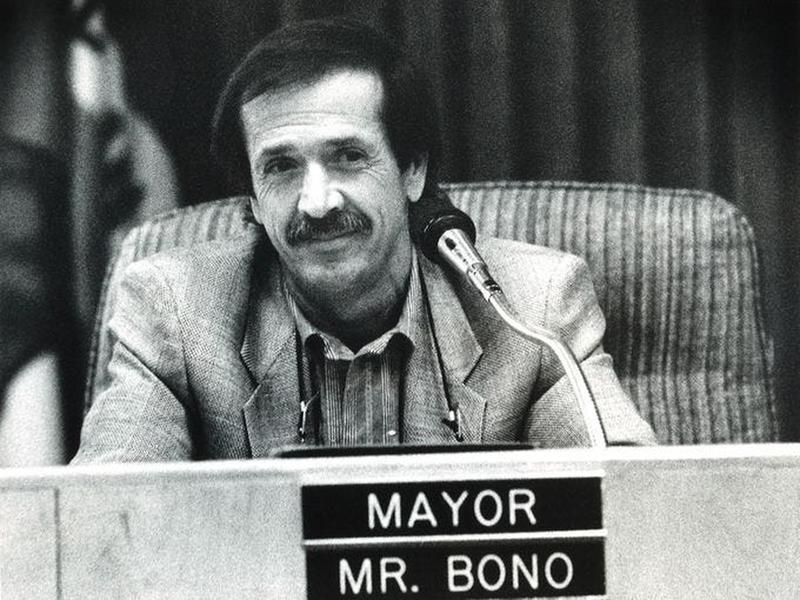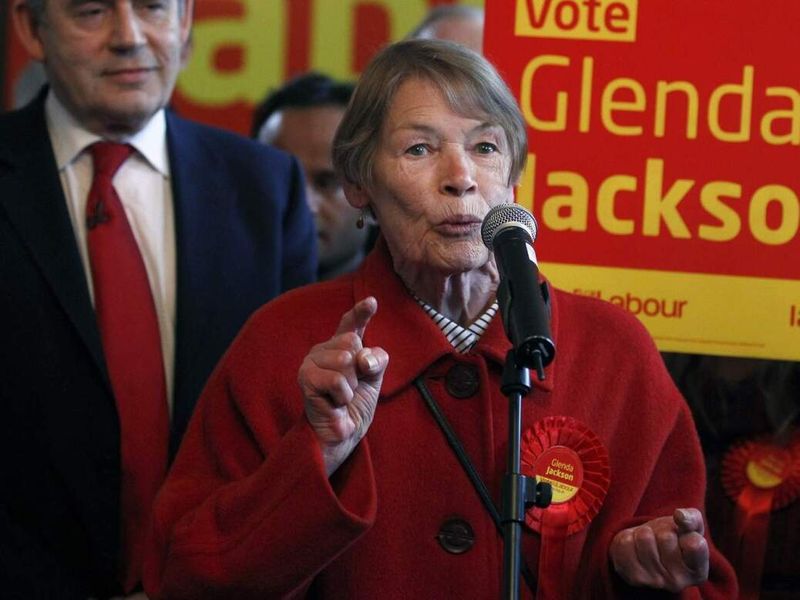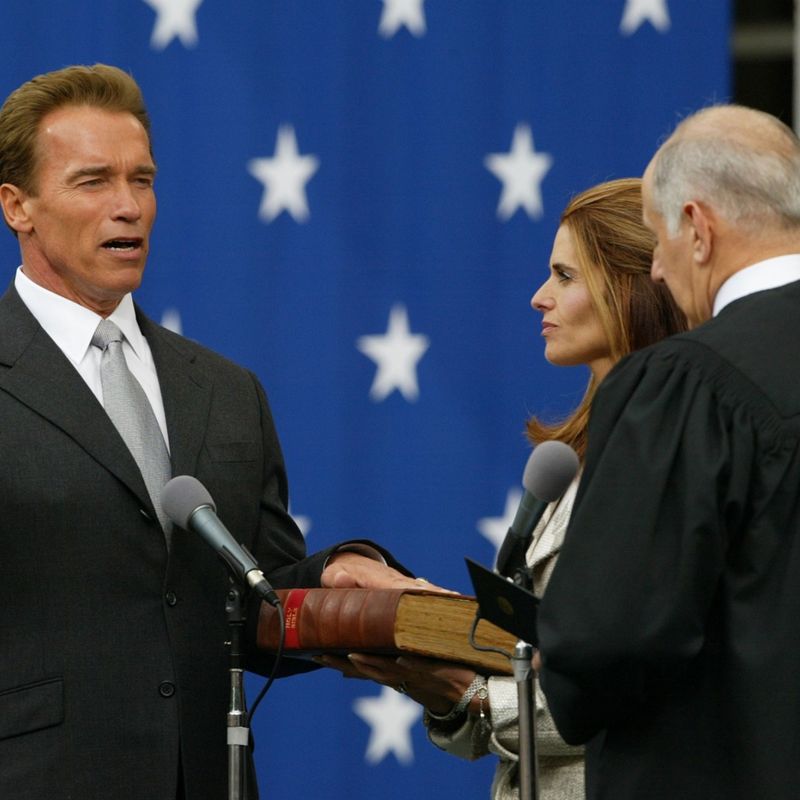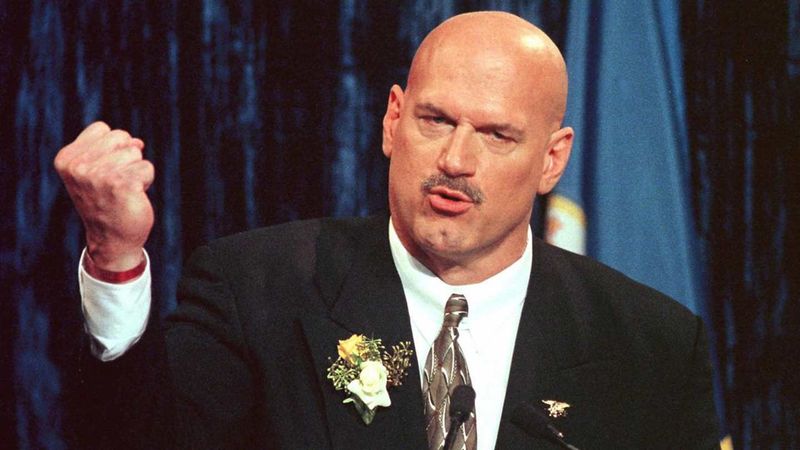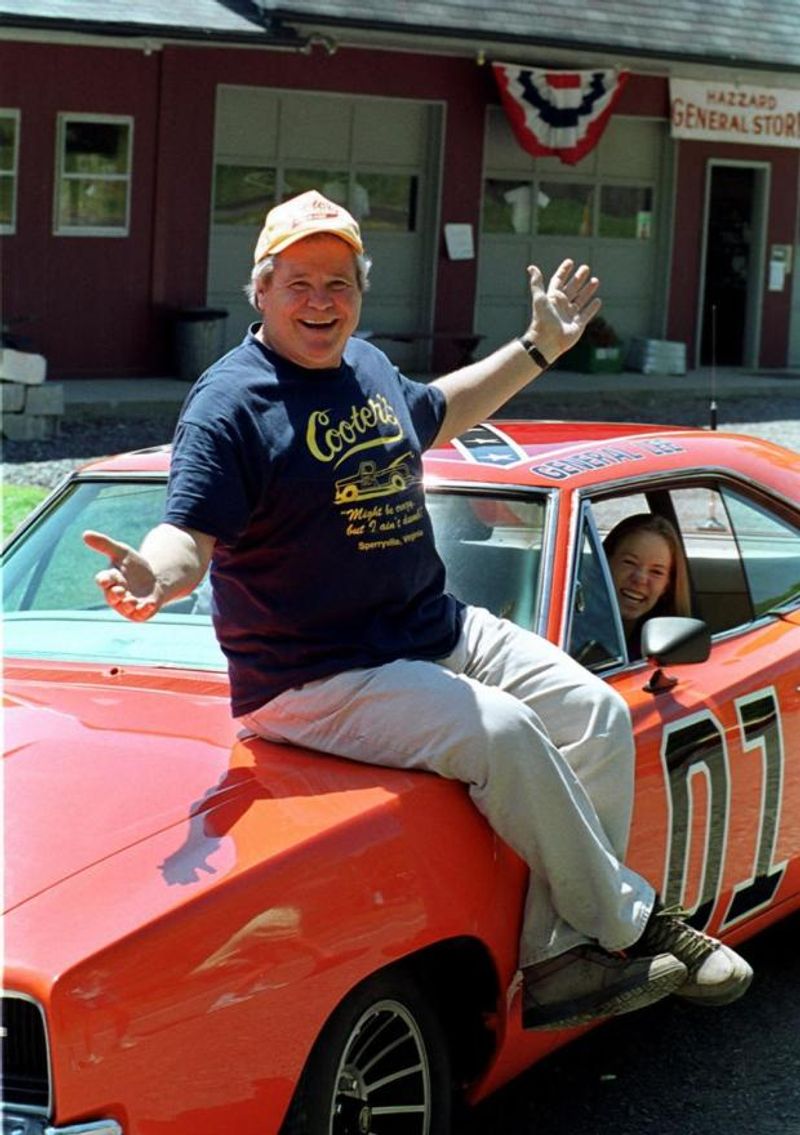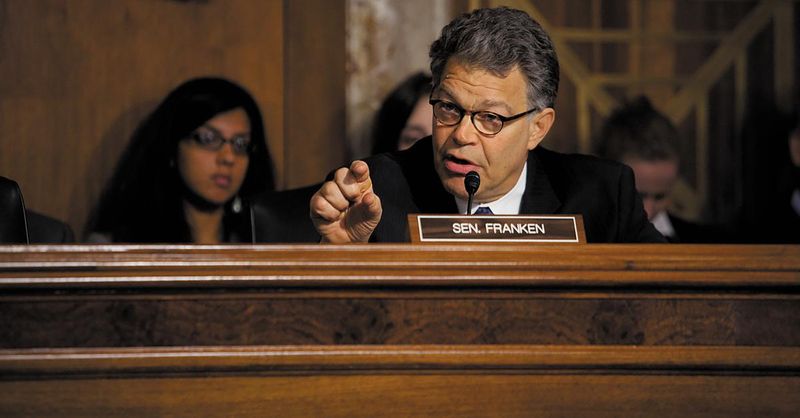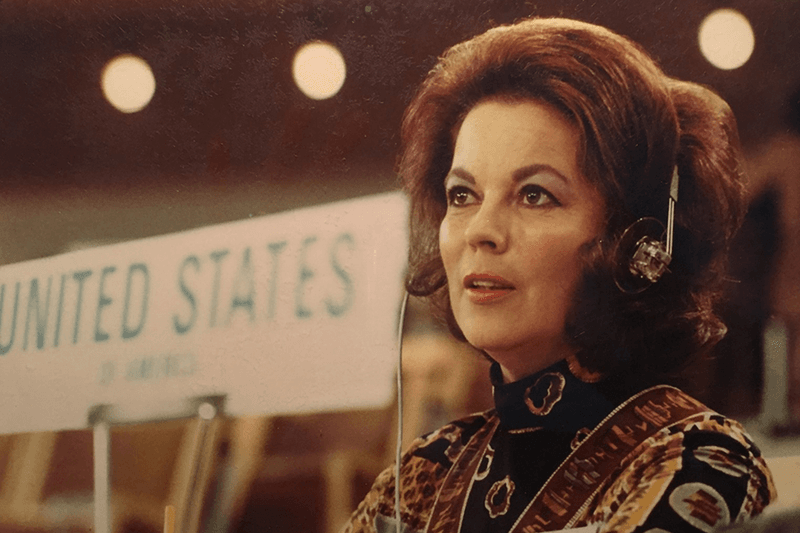Hollywood has always had a fascinating relationship with politics. From the silver screen to city halls and senate chambers, some actors decided trading scripts for legislation was their next big role. These stars captivated audiences in the neon-soaked 1980s but later found their calling in public service. Their journeys from memorizing lines to drafting laws show how fame can transform into political influence.
1. Fred Thompson: Legal Eagle On and Off Screen
Before hunting for Red October on film, Thompson already had a foot in politics as a Watergate committee counsel. His imposing 6’6″ frame and deep voice made him perfect for roles as authority figures in films like ‘No Way Out’ and ‘Die Hard 2.’ Thompson represented Tennessee in the U.S. Senate from 1994 to 2003, championing conservative causes while occasionally returning to acting. His dual career reached its peak when he starred in ‘Law & Order’ while still serving as a senator. Many Americans didn’t realize Thompson was a real politician first and an actor second. His 2008 presidential bid fizzled, but his legacy as a politician-turned-actor-turned-politician remains unique in American history.
2. Clint Eastwood: Dirty Harry Cleans Up City Hall
The squinty-eyed gunslinger who dominated ’80s cinema with ‘Sudden Impact’ and ‘Any Which Way You Can’ took aim at local politics in 1986. Frustrated by Carmel-by-the-Sea’s restrictive business regulations, Eastwood campaigned with his signature no-nonsense approach. His two-year mayoral term focused on practical matters—allowing ice cream shops to operate and improving public facilities. Eastwood governed much like his film characters: quietly effective and uninterested in bureaucracy. The actor took a modest $200 monthly salary and often paid for city improvements himself. Though his political career was brief, it demonstrated how celebrity influence could be channeled into genuine community improvement rather than mere publicity.
3. Sonny Bono: From Pop Star to Congressman
Most remember him as half of Sonny & Cher, but Bono reinvented himself multiple times—including as an actor in ’80s fare like ‘Airplane II’ and ‘Fantasy Island.’ His political awakening came after restaurant permit struggles in Palm Springs. Elected mayor in 1988, Bono revitalized the desert city’s economy with business-friendly policies. His success propelled him to Congress in 1994, where he served until his tragic skiing accident in 1998. Colleagues initially dismissed him as a celebrity dilettante but quickly recognized his practical approach to governance. The copyright extension act bearing his name (passed posthumously) remains his most enduring legislative legacy, protecting artists’ works long after their deaths.
4. Glenda Jackson: From Oscar Winner to Parliament Member
While Americans know her from ’80s films like ‘Hopscotch’ and ‘The Return of the Soldier,’ British audiences witnessed Jackson’s remarkable transformation from acclaimed actress to outspoken politician. The two-time Academy Award winner traded Hollywood for Westminster in 1992. Representing London’s Hampstead and Highgate district for 23 years, Jackson became known for her fierce debates and unwavering principles. Unlike many celebrity politicians, she completely abandoned acting during her political career, demonstrating total commitment to public service. Jackson’s parliamentary speeches against Margaret Thatcher and austerity measures displayed the same intensity that once earned her acting accolades. After leaving politics in 2015, she remarkably returned to acting at age 80, winning a Tony Award.
5. Arnold Schwarzenegger: From Terminator to Governor
The Austrian-born muscle man dominated action films throughout the ’80s with classics like ‘The Terminator,’ ‘Predator,’ and ‘Commando.’ His catchphrase “I’ll be back” took on new meaning when he returned as California’s 38th Governor in 2003. Serving until 2011, Schwarzenegger tackled environmental issues and budget reforms with the same determination he showed battling aliens and bad guys. Though his approval ratings fluctuated like box office numbers, his celebrity status brought international attention to state politics. Fun fact: Arnold couldn’t pronounce “California” correctly during his early campaign speeches but worked with a speech coach to master it before taking office!
6. Jesse Ventura: Wrestling His Way to the Governor’s Mansion
Before shocking the political establishment by becoming Minnesota’s governor, Ventura battled Arnold Schwarzenegger in ‘Predator’ and appeared in ’80s wrestling rings as ‘The Body.’ His larger-than-life personality transferred seamlessly from entertainment to politics. Running as a Reform Party candidate in 1998, Ventura defeated both major parties with straight-talking campaign promises and anti-establishment credentials. His governorship featured tax rebates, infrastructure investments, and early support for LGBTQ rights. Ventura’s unconventional style—including wearing feather boas at official functions—dismayed traditionalists but delighted voters tired of typical politicians. Though serving just one term, he demonstrated how outsider celebrities could upend political norms decades before Donald Trump entered politics.
7. Ben Jones: Dukes of Hazzard Mechanic Fixes Congressional Engine
As Cooter Davenport, the reliable mechanic on ‘The Dukes of Hazzard,’ Jones fixed everything from the General Lee to Duke family dilemmas. This working-class persona served him well when campaigning for Georgia’s 4th congressional district in 1988. Jones represented his constituents for two terms, focusing on practical economic issues affecting rural and working-class voters. His folksy charm translated effectively to town halls and committee hearings alike. Unlike many celebrity politicians who downplay their entertainment backgrounds, Jones proudly embraced his Cooter persona. He later founded Cooter’s Place museums celebrating the show and organized Dukes fan conventions, proving political service needn’t erase cultural contributions. His campaign slogan? “Cooter’s gonna fix it!”
8. Al Franken: Saturday Night Live Writer to Senate Spotlight
Long before becoming Minnesota’s senator, Franken wrote and performed on SNL throughout the ’80s, creating memorable characters like Stuart Smalley. His political evolution began with satirical books criticizing conservative politics before campaigning for office himself in 2008. Franken’s Senate career featured passionate advocacy for net neutrality, healthcare access, and consumer protections. His unique background enabled him to simplify complex policy issues into understandable concepts during committee hearings. Unlike most politician-celebrities who lean on charisma, Franken established himself as a serious policy wonk. His questioning of Trump administration nominees went viral multiple times before his 2018 resignation amid controversy. Franken demonstrated how entertainment skills could be repurposed for effective political communication rather than mere performance.
9. Shirley Temple Black: America’s Darling Becomes Ambassador
Though her heyday came decades earlier, Temple Black remained culturally relevant through ’80s television appearances and public service. The dimpled child star who lifted Depression-era spirits transformed into a sophisticated diplomat representing American interests abroad. Appointed Ambassador to Ghana in 1974 and later to Czechoslovakia in 1989, Temple Black witnessed the fall of communism firsthand. Her diplomatic skills proved crucial during Eastern Europe’s democratic transition, disproving critics who initially dismissed her appointment as celebrity tokenism. Temple Black’s political journey began after an unsuccessful congressional run in 1967. Rather than abandoning public service, she redirected her efforts toward diplomacy and United Nations work. Her remarkable transformation from tap-dancing child to international diplomat remains one of Hollywood’s most impressive second acts.
